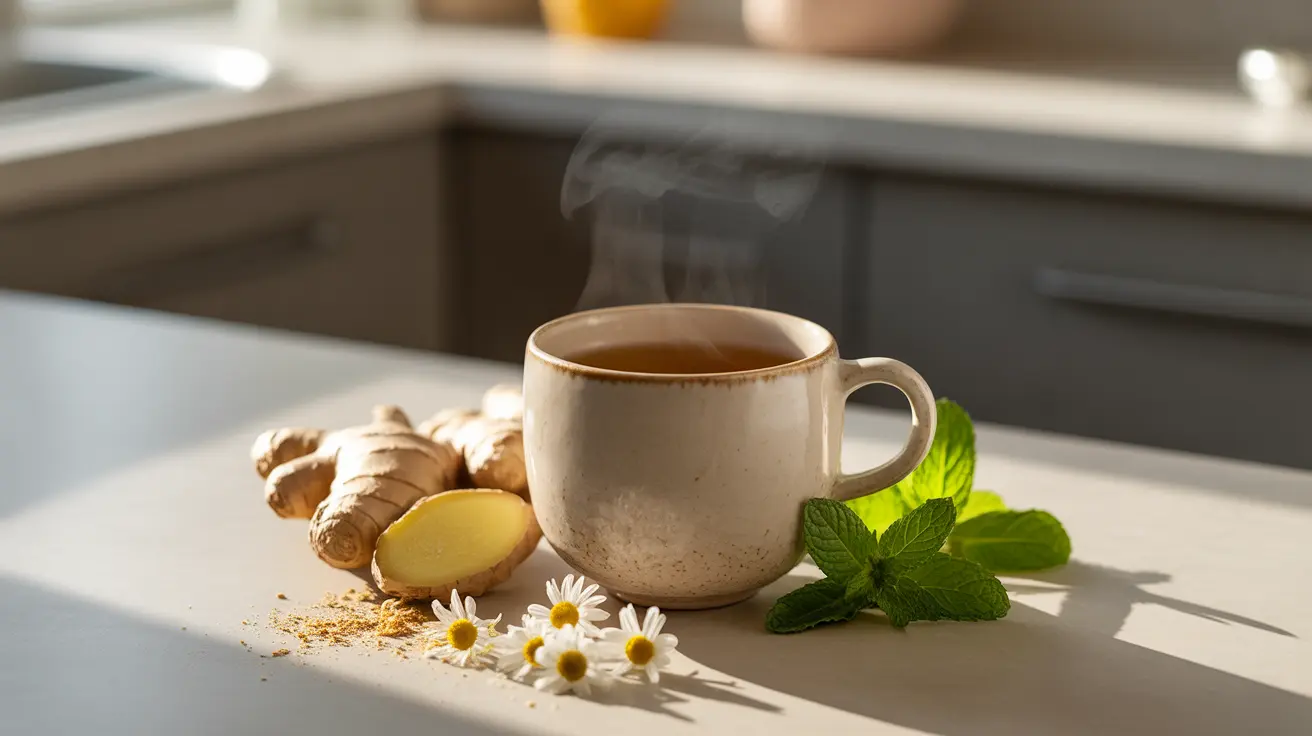When menstrual cramps strike, reaching for a soothing cup of herbal tea can provide natural relief from discomfort and pain. Various herbal teas contain beneficial compounds that may help reduce inflammation, relax uterine muscles, and ease menstrual symptoms naturally.
Understanding which teas are most effective for period cramps and how to prepare them properly can make a significant difference in managing monthly discomfort. Let's explore the most beneficial herbal teas and how they work to provide relief.
Ginger Tea: A Powerful Anti-inflammatory Option
Ginger tea stands out as one of the most effective natural remedies for menstrual pain. This warming herb contains gingerols and shogaols, compounds that help reduce inflammation and ease muscle contractions.
To prepare ginger tea effectively:
- Use 1-2 inches of fresh ginger root, thinly sliced
- Steep in hot water for 5-10 minutes
- Drink 2-3 cups daily during your period
- Add honey or lemon to taste if desired
Chamomile Tea for Relaxation and Pain Relief
Chamomile tea offers both calming and anti-spasmodic properties, making it excellent for reducing period cramps. Its natural compounds help relax uterine muscles and reduce inflammation while promoting better sleep during menstruation.
How to Maximize Chamomile's Benefits
For best results:
- Use one tea bag or 1-2 teaspoons of dried chamomile flowers
- Steep for 5-7 minutes in hot water
- Drink up to 4 cups daily
- Consider combining with other helpful herbs like peppermint
Peppermint Tea Benefits for Menstrual Comfort
Peppermint tea provides a cooling effect that can help ease cramping and reduce bloating. Its natural menthol content helps relax smooth muscles and provides a gentle analgesic effect.
Red Raspberry Leaf Tea
Red raspberry leaf tea is rich in fragarine, a compound that helps tone the uterine muscles. Regular consumption may help reduce the intensity of menstrual cramps over time.
Additional Beneficial Teas
Cinnamon Tea
Cinnamon tea offers warming properties that can improve circulation and reduce inflammation. Add a cinnamon stick to hot water or use ground cinnamon in a tea ball for relief.
Fennel Tea
Fennel tea has antispasmodic properties that can help reduce the intensity of menstrual cramps. It also helps reduce bloating and digestive discomfort during menstruation.
Frequently Asked Questions
What are the best herbal teas to help relieve period cramps naturally?
Ginger, chamomile, peppermint, red raspberry leaf, cinnamon, and fennel teas are among the most effective natural remedies for period cramps. Each offers unique properties that help reduce pain and inflammation.
How does ginger tea work to reduce menstrual pain and cramps?
Ginger tea works through its active compounds, gingerols and shogaols, which have anti-inflammatory properties. These compounds help reduce prostaglandins that cause pain and help relax uterine muscles.
Are peppermint and chamomile teas effective for easing uterine cramps and bloating?
Yes, both peppermint and chamomile teas are effective. Peppermint helps relax smooth muscles and reduce bloating, while chamomile provides anti-inflammatory and antispasmodic benefits.
Is raspberry leaf tea safe and beneficial for reducing menstrual cramps?
Yes, raspberry leaf tea is generally safe and beneficial. It contains compounds that help tone the uterus and reduce cramping. However, consult with your healthcare provider before regular use, especially if pregnant.
How should I prepare and drink teas like cinnamon or fennel to help with period pain?
For cinnamon tea, steep a cinnamon stick in hot water for 10-15 minutes. For fennel tea, use 1-2 teaspoons of crushed fennel seeds and steep for 5-10 minutes. Drink 2-3 cups daily during your period for best results.
Remember to listen to your body and adjust tea consumption according to your personal response. While these natural remedies can provide significant relief, consult with a healthcare provider if you experience severe menstrual pain or if symptoms worsen.




